Published Oct 3, 2014
EXCLUSIVE INTERVIEW: DS9'S Rom, Max Grodenchik, Part 2
EXCLUSIVE INTERVIEW: DS9'S Rom, Max Grodenchik, Part 2
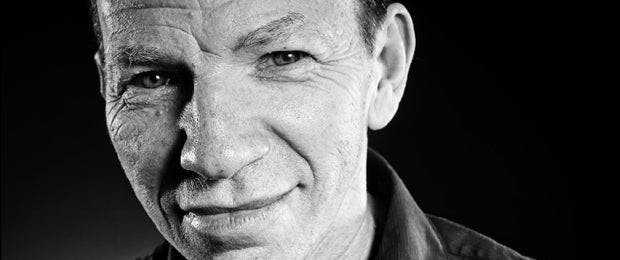
No Star Trek series made greater use of its supporting cast than Deep Space Nine. One character after another contributed to the show’s rich ensemble. We can all rattle them off: Rom, Nog, Garak, Leeta, Dukat, Morn, Winn, Gowron, Zek, Weyoun, Keiko and Martok, etc. StarTrek.com has spoken to most of the actors who brought to life those memorable figures, but not all, and today (and yesterday) we’re knocking one off the list. StarTrek.com finally caught up with Max Grodenchik, who portrayed Rom across 37 episodes of DS9. The actor lives in Austria these days, but will fly in to the U.K. this weekend to appear at Destination Star Trek 3 in London. In advance of that appearance, StarTrek.com picked Grodenchik’s brain for an extensive interview that we’ve run in two parts. Click HERE to read part one, and check out part two below...
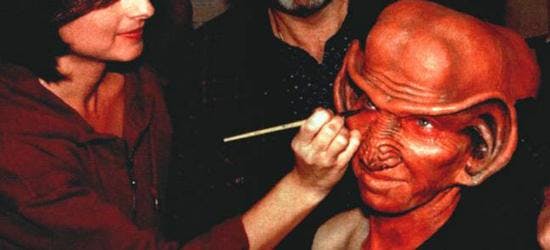
At some point, they broke the news to you that you didn't win the role of Quark. Was it in that same conversation that they offered you Rom?
GRODENCHK: In Hollywood they generally don’t call when you don’t get a job. You call your agent and ask if the role’s been cast and the standard answer is something like, “He read great, we’re just going in another direction,” something like that. The news would’ve come from me calling my agent and asking her to see what, if anything, happened, but I’m pretty sure I didn’t make that call in that situation. Yeah, I could be wrong, but I don’t remember that piece of news being broken. I do remember that the time between the first and second auditions was maybe three weeks… I’m repeating what I said earlier, that after the phone didn’t ring right away after the first audition I figured I wasn’t getting called back and that there would be no second audition.
So after the second audition I don’t think I was expecting the phone to ring so quickly. It’s a long time ago, but I think, since they didn’t call right away the first time, I think I thought they’re not likely to call right away this time either, and since I didn’t understand the timing – most TV is pretty quick, if they want you, you know it within a couple or three days – and since the I didn’t understand the timing I think I said to myself, “Well, I have no idea when they’ll call, if they call, and they probably won’t call anyway since I wasn’t very good.” And with those thoughts I was able to let go of it and forget about it.
Then the phone did ring…
GRODENCHIK: I don’t know how much later – but then the phone did ring. They wanted me for one day as a Ferengi Pit Boss. They paid me more money for one day than I’d ever gotten up to that point in time. Of course, I did it. I thought, “Well, that’s nice of them, they’re giving me a little bit of a consolation prize. OK, that’s truly sweet, like they actually did like me, but they couldn’t use me, that happens, so sweet of ’em, thank you very much.” Sincerely, that’s how I felt.
So I did the one day as the Pit Boss and, of course, now I knew for sure that Armin got the role of Quark, so I could close that chapter of any leftover mystery in my head. I thought, “OK, that was nice, maybe they’ll use the Pit Boss again.” Well, almost before I could finish that thought – that’s how quick it feels remembering it – I got asked to be a guest star for another episode, “A Man Alone,” an Odo episode. That felt fabulous! And I’m not sure, I’d have to see a script, but I believe my character’s name was “Rom” in this episode.
So Rom appeared and he was me or I was him and that was really great, but I thought it was a one-time thing. Never ever did I think I’d be back – for almost every episode the first three seasons or so, I thought, “Well, nice, they gave me another one. Each episode’s a nice little gift and thank you for that. You’ve done more than enough for me, so it’s quite OK that you’re done with me. I totally understand.” And that’s how it was in my head.It all happened so unexpectedly. That’s how it felt: unexpected. It took me a long while to realize that I was a part of the show. I’d say to Armin at the end of the season, “Well, not sure I’ll be back next season, but it’s been nice working with you.” Armin would chuckle and reassure me, “Don’t worry, Max, you’ll be back.” That’s how it went the first few seasons. People have asked over the years if I knew how Star Trek would change my life when I first began working there. No, didn’t have a clue. It’s kind of nice that it all came as a series of lovely surprises.
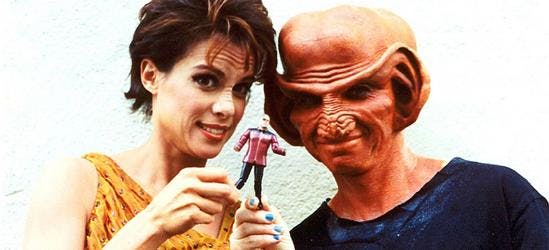
You played Rom more than 30 times over the course of DS9's seven-year run. Who was he at point A when we first met him and who was he by the time the show ended?
GRODENCHIK: I think there were 37 episodes in which Rom appeared, though he’s only identified as the “Pit Boss” in the pilot. In the beginning Rom is a misfit, a Ferengi who can’t find a way to fit into Ferengi society. He’ll never be his brother, though he desperately wants to be like him, to fit in, to be able to deal in business as his brother and other Ferengi do, but he lacks the unscrupulous nature necessary for such wheeling/dealing. And of course he knows how out of place he is in that business culture and is frustrated by his repeated attempts to try to be someone he is, at heart, not.
What happens in the course of the series is that Rom begins to come into contact with many different aliens, especially humans – especially Starfleet humans, and now there are these tremendous other influences on him, not just his brother’s influence. And this is how he develops, this is how he learns that there’s another way to be, in fact, not just one way to be, but that people have choices, make choices, about what they want their lives to be. By the end of the series, not having to be under his brother’s thumb, I think he’d had the opportunity to explore who he really was, and the possibilities of who he could become
How about this saying it this way: in the beginning he built his life around something he deep-down really was not. Over the course of the series he was able to construct a life based on a more realistic sense of himself, who he really was. The contact with the aliens on – or traveling through – the space station made him question his false sense of self. The influence of seeing others living lives built on a more realistic sense of self helped Rom move in that direction, gave him the strength to try to live differently, to stand up to Quark, for example. The positive outcome of the new actions he took gave him self-esteem. That’s what it is. What he has at the end of the series that he doesn’t have at the beginning is a way more developed sense of self-esteem, maybe self-worth. That’s my amateur-psychologist take on it. I’m actually a little jealous of Rom’s sense of self-worth.
We're not going to ask you to go through every episode of DS9 you were in, but what would you say were some of his -- and your -- most memorable moments?
GRODENCHIK: In the next-to-last episode of the third season, “Facets,” a Jadzia Dax episode, the B-story was about Nog taking a pre-entrance exam towards his entry into Starfleet Academy. Quark sabotages the test. Rom finds out. He waits for Quark to come down a corridor, throws him up against the wall and says, “If you ever do anything to hurt my son again, I will burn the bar to the ground.” That was a turning point, both for the character and myself. Rom begins to stand up to his brother, here standing up for Nog, and later on standing up for himself. It was at the end of season three, and I think helped me begin to accept the possibility that the writers were trying to do something a little special with Rom. Maybe a little bit of a “They like me, they really like me” moment. By the way, the first take went very well – we didn’t do another. But I was really hoping I could throw Armin against the wall again. Damn.
Well, I didn’t realize how much there was in that episode. At the end of it I bring Nog into the bar, presenting him as a “cadet,” which he wasn’t yet, but Rom was being such a proud father. I remember holding Aron’s hand as I escorted him into the bar, because my own dad would sometimes hold my hand in a situation like that and I always thought it was a very loving gesture. But Aron hated it. I insisted. We both went to Armin to arbitrate and, of course, Armin worked out a compromise.
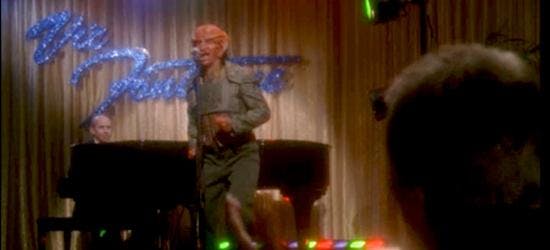
What else?
GRODENCHIK: I remember becoming Grand Nagus. It was the only time I ever said something that wasn’t in the script: I say “Wow” because of the incredibleness of what just happened to me, and because of the incredibleness of the journey I’ve been on. I remember Rom auditioning for Vic Fontaine in the very beginning of “Siege of AR-358.” I got to sing with a live piano. God bless that piano player, he was great. Usually the hot shower’s my only accompaniment, so this was a real treat for me. Rom sings his audition song, but Vic says something like, “Sorry, two singers on the same bill is a one-way ticket to deadsville.” Then Bashir enters as Rom, dejected, leaves. And on his way out Rom says to Bashir, thinking Bashir’s come in to audition as well, Rom says, “He’s not hiring.”
A light moment in a very heavy episode…
GRODENCHIK: It’s an extremely serious episode in which Nog loses a leg in battle. I think the writers wanted the scene there so that the episode would have at least one lighter moment. I don’t think that little scene made the heaviness of what was to come any easier to take, but boy, I really got a kick out of them wanting me to sing.
How about “Take Me Out to the Holosuite,” the baseball episode? You actually had to pretend not to be as good at baseball as you actually are, right?
GRODENCHIK: I just remember we were warming up, playing catch, and I had been wearing the glove on my other hand. I’m a righty, and I wore the glove like I was a lefty, and I was throwing with my left hand to make Rom look like less of a good ball player, and I was playing catch with Nana (Visitor), and I was just warning her that my throws might not be so accurate. I said, “You should know I’m throwing with my left hand,” and she said, with a blank face, “I have no idea what that means”—which made me laugh. But I also remember that it was Nana’s idea to have the females on the team lift Rom up and carry him around after his bunt brought that one run home where the game ended. She got the idea and ran it by the director, and that’s how I remember that happening. That was a lot of fun, being lifted up by all those females. I could’ve done 100 takes.
I remember feeling a great camaraderie among us Ferengi while filming “The Magnificent Ferengi.” We all put on that makeup for eight days in a row, the toughest makeup episode of all. Yeah, had a weekend after five days, but your skin is barely beginning to heal when you get thrown into the makeup again. But it was a great group of guys, a fun story for us to work on, and we seemed to have a lot of fun doing it. When you’re wearing that makeup with five other guys, well, it’s like it’s a comfort to know that five other actors are going through the exact same thing you’re going through. My main memory is that those guys were able to make me laugh. And Chris Shea, who played the Vorta, was hysterically funny.
I also very much enjoyed the “Through the Looking Glass” mirror universe episode, the one where Rom dies… Well, yeah, okay, I didn’t wanna die, but I think they killed off one Ferengi in every mirror universe episode. I remember the fun of trying to work out a character that was supposed to be the very opposite of Rom. I loved standing up to Tuvok, playing a tough guy, something no one would ever cast me as… well, almost no one.
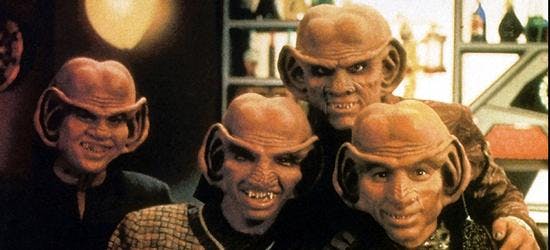
As dysfunctional as Quark, Nog and Rom could be, you and Armin Shimerman and Aron Eisenberg became like family. How unexpected a bonus was that?
GRODENCHIK:Star Trek changed my life, brought me many, many gifts. My relationship with Armin and Aron is on top of the gift pile. Armin and I are the same generation, and before I moved overseas I lived much closer to Armin than to Aron. My wife’s theater company – where she stage manages, and where I studied acting – it’s literally next door to Armin and Kitty’s theater company. And Armin and Kitty (Swink, Shimerman's wife) have been able to visit us over here in Austria, spending several days with us. So my relationship to Armin is closer, but I feel I’ve gotten closer to Aron through the convention shows we put on, first with the Ferengi Family Hour and now with these Nog-Rom in makeup appearances we’ve been doing, and on this coming Thanksgiving weekend we will do our 10th show for Starbase Indy in Indianapolis. That’s a lot of shows and rehearsals and Skype-ing, etc. I’m such a negative guy, and Aron has a positive attitude that I’m in awe of, that I’m trying to learn from.
I consider Armin my mentor, and I learned from him how to conduct myself on the set, as well as conduct myself in life. I’ve been on shoots as an actor where I’d get into a sticky situation and feel frazzled that I didn’t know what to do, and I’d ask myself, “What would Armin Shimerman do in this situation?” And then instead of feeling stuck in the problem, a couple of possible solutions would appear. It really works for me; I should probably try that in real life as well, ask myself how Armin might handle things.
What, if anything, did you NOT get to explore as Rom that you would have liked to play?
GRODENCHIK: I would have liked one more take on just about every shot, but maybe that’s something many actors want. I watched Rene (Auberjonois) and Salome Jens do a fabulous scene. It took a number of takes and seemed to get better each time they did it, and it was pretty wonderful to begin with. When they were done, I walked up to Rene to compliment him on how great I thought it was. It was a heavy Odo episode and he was pretty tired, but he looked at me, he was pretty worn-out, he raised one finger, and said, “One more take, [and] we would’ve had it.” If he can feel that way – wanting one more take – then I’m in some pretty good company. Maybe every actor – even the greats – feels some of that. Now, as I got more and more comfortable on the set, once in a while I would actually ask for another take and they would let me have it. But it didn’t matter: even after the extra take, I still wanted another one.
But I don’t think I’m answering your question. What would I have liked to play that I didn’t? Since I’m a little bit of a language student, I’d have liked Rom to have dabbled in speaking in different languages. When Rom worked at the bar he could have welcomed Klingons by speaking a little Klingon as he led them to their table, likewise maybe a little Bajoran language for the Bajoran patrons, and there’d be some French, some Italian or German the hyoo-mahns. Just a few words in the customer’s language. It could’ve served to show Rom’s effort to better himself. It might’ve conflicted with the universal translator concept, though. But not complaining: the writers certainly gave a story arc to Rom beyond anything I could’ve imagined. It really meant something to me that Rom got to fight for Nog’s education because, had it been necessary, my own father would have fought for mine.
Lastly, if we visited your house now, would we know you were on Star Trek? Do you have photos on the wall? Rom's head in a glass case? An action figure on your desk?
GRODENCHIK: You’d have to look in the right drawers. But if you go through one of my daughter’s boxes of toys, and the Rom action figure falls out, my daughter will very likely say, “Papa!”
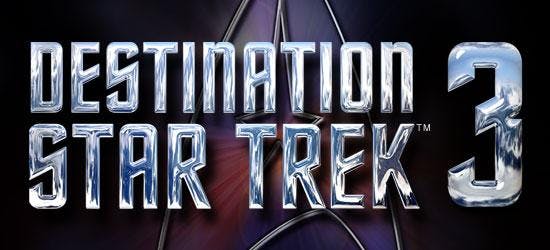
Click HERE to read part one of our interview with Max Grodenchik. And visit www.destinationstartrek.com for details about Destination Star Trek 3.

